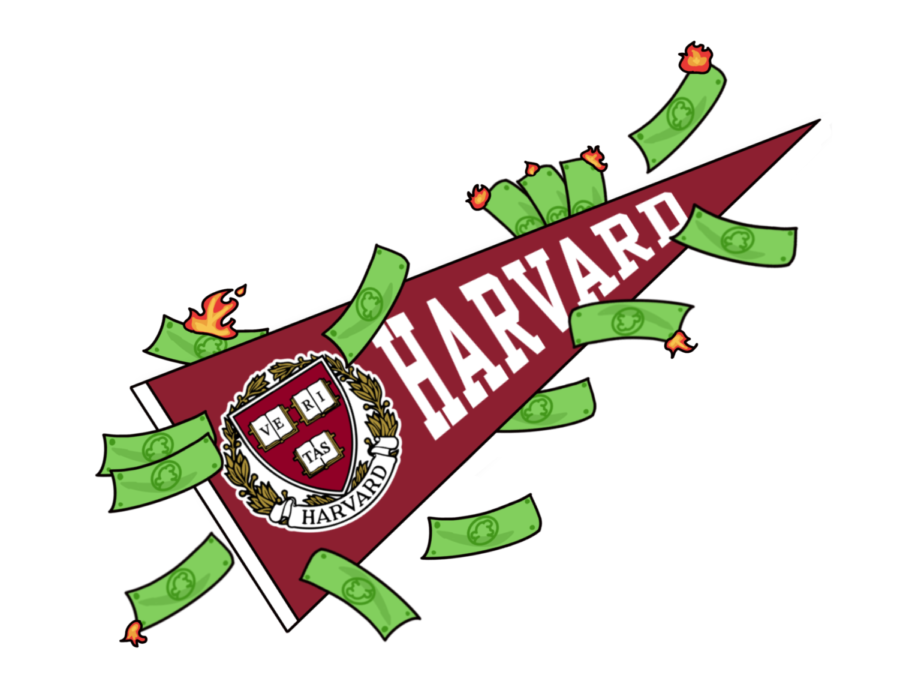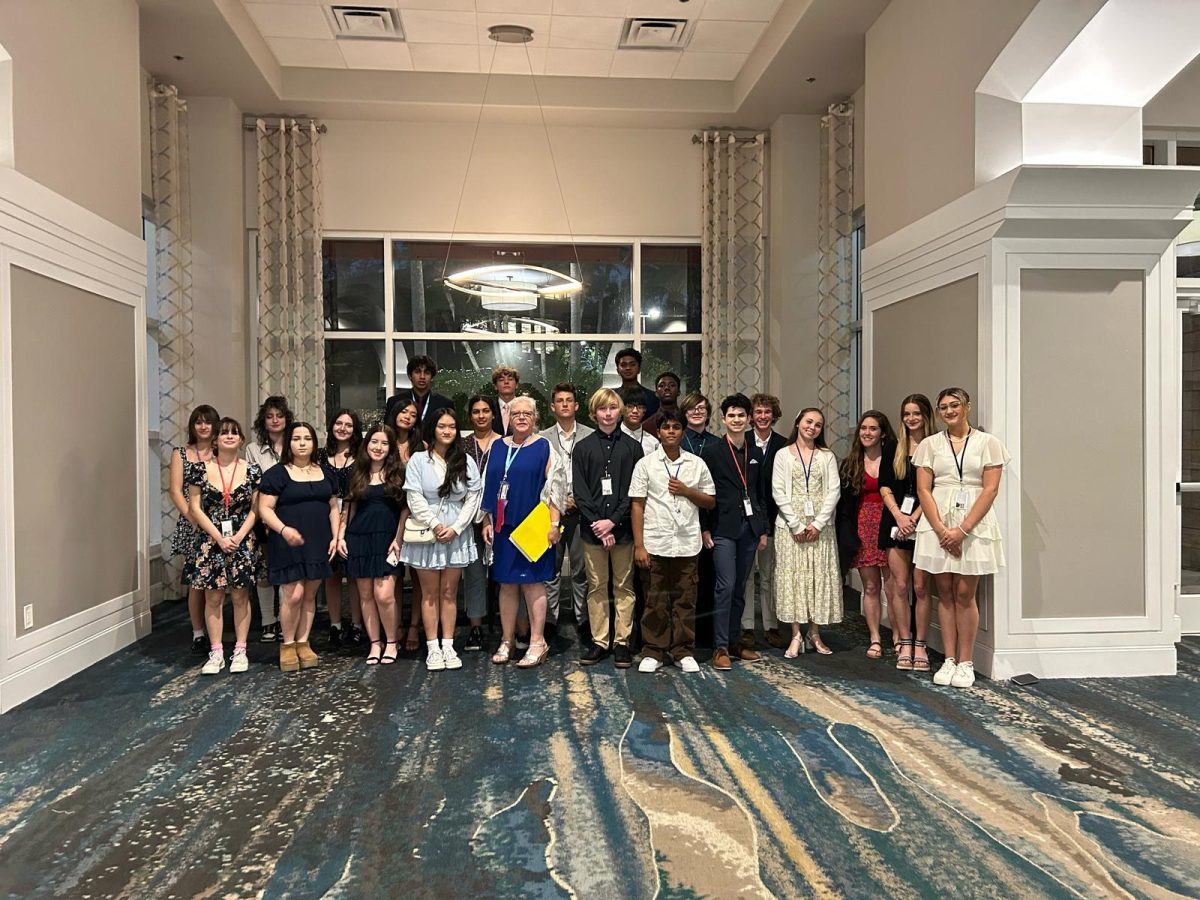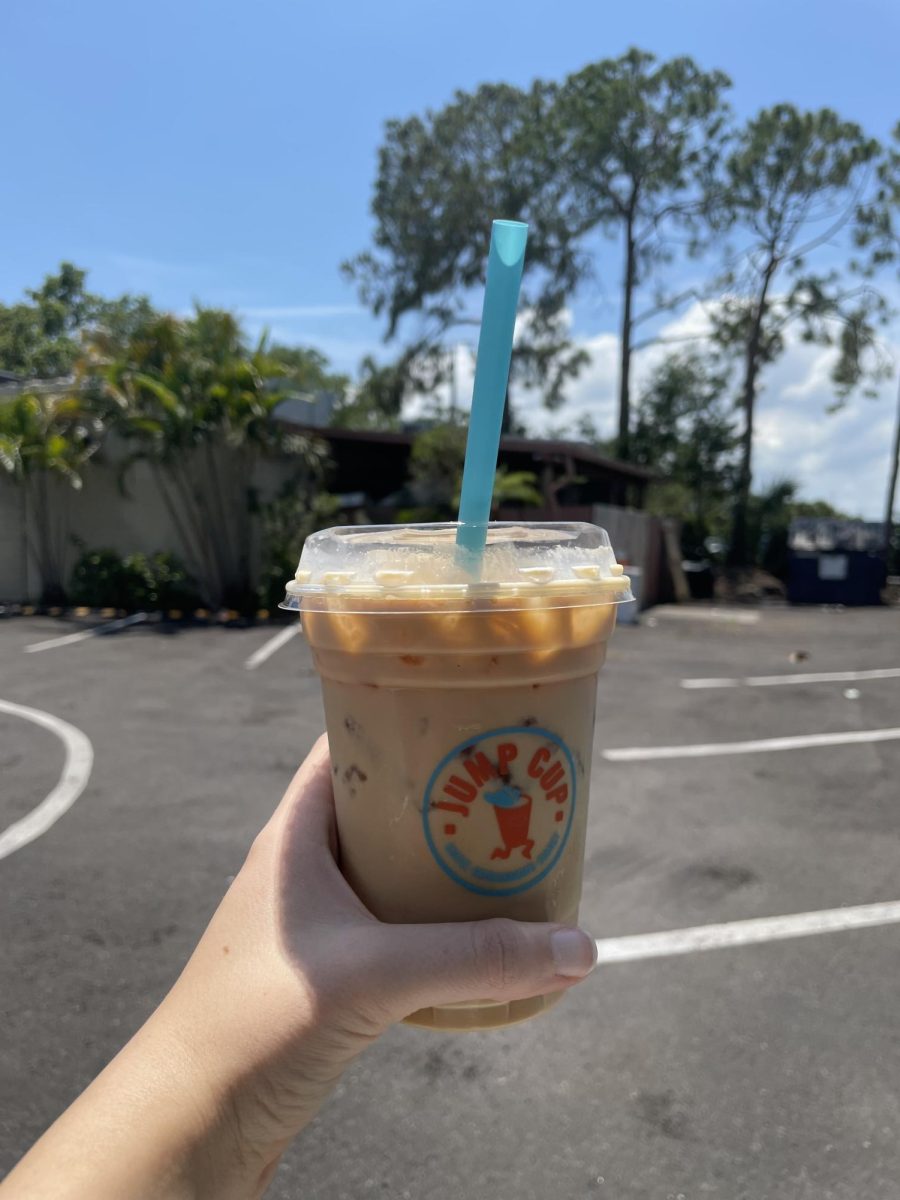Ivy Leagues Don’t Deserve the Hype
When thinking about college applications, open your mind to more than just the elite.
Photo Juno Le
The Harvard University pennant surrounded by money going up in flames.
August 5, 2022
Too much money. Too far away. Too overhyped and not enough distinguishable qualities. Throughout K-12 education, Ivy League schools continue to be praised as America’s most elite schools. But when the time comes to actually apply to colleges, the decision to apply to an Ivy is much tougher.
When thinking of the elite, there are usually indications of wealth attached. This is fair given how high the price of attending these schools is. According to The Balance, the average tuition for an Ivy League school in 2020-21 was $56,746. Rent, food, books and other supplemental utilities must also be taken into account, raising the average estimated cost of attendance at an Ivy League with fees to $78,417. And before one can even worry about paying off the tuition, there’s also the application fee, which averages at $77.50 for an Ivy League. For some, it may be a $77.50 rejection.
This doesn’t necessarily mean that Ivy Leagues are the most expensive schools (though they’re not the cheapest options). The school with the most expensive tuition for the 2021-22 school year was the University of Chicago, which was $79,356 for out-of-state students. Out-of-state tuitions are much higher compared to that of in-state to accommodate for non-resident students whose families haven’t paid tax dollars to the state (according to Nationwide Mutual Insurance Company).
For students looking for more affordable options, staying in-state isn’t a bad idea and can achieve near the high standards of the Ivy Leagues. In 2022, the University of Florida ranked no. 28 in the U.S. News report for best national universities as well as no. 5 in the ranking for best public schools in the U.S., with an in-state tuition of $6,380.
If wanting to go out of state for college, there are several options that are still just as good, if not better, than the Ivy League schools. Johns Hopkins University, University of Washington, Northeastern and several others offer a wide range of studies, even if they aren’t in an elite athletic conference.
Searching for colleges should be based on one’s own interests and if a school offers something that stands out to the applicant, elite status doesn’t necessarily matter. While it doesn’t hurt to apply to an Ivy, take a moment to consider if it’s worth it to you to apply rather than listen to the status quo.











